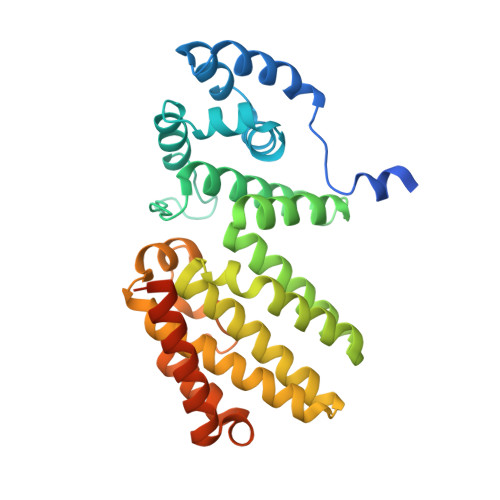The metaeffector MesI regulates the activity of the Legionella effector SidI through direct protein-protein interactions.
McCloskey, A., Perri, K., Chen, T., Han, A., Luo, Z.Q.(2021) Microbes Infect 23: 104794-104794
- PubMed: 33571674
- DOI: https://doi.org/10.1016/j.micinf.2021.104794
- Primary Citation of Related Structures:
7C0Q - PubMed Abstract:
To create an intracellular niche permissive for its replication, Legionella pneumophila uses hundreds of effectors to target a wide variety of host proteins and manipulate specific host processes such as immune response, and vesicle trafficking. To avoid unwanted disruption of host physiology, this pathogen also imposes precise control of its virulence by the use of effectors called metaeffectors to regulate the activity of other effectors. A number of effector/metaeffector pairs with distinct regulatory mechanisms have been characterized, including abrogation of protein modifications, direct modification of the effector and direct binding to the catalytic pocket of the cognate effector. Recently, MesI (Lpg2505) was found to be a metaeffector of SidI, an effector involved in inhibiting host protein translation. Here we demonstrate that MesI functions by inhibiting the activity of SidI via direct protein-protein interactions. We show that this interaction occurs within L. pneumophila and thus interferes with the translocation of SidI into host cells. We also solved the structure of MesI, which suggests that this protein does not have an active site similar to any known enzymes. Analysis of deletion mutants allowed the identification of regions within SidI and MesI that are important for their interactions.
Organizational Affiliation:
Purdue Institute of Inflammation, Immunology and Infectious Disease and Department of Biological Sciences, Purdue University, West Lafayette, IN 47907, USA.















